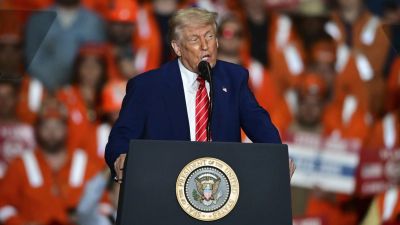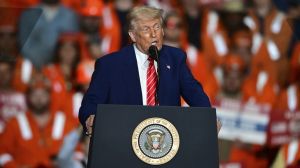Khan bought loyalty with cheques
Abdul Qadeer Khan spent hundreds of thousands of dollars to buy loyalty — writing cheques for anything from seminars to friends’ w...

Abdul Qadeer Khan spent hundreds of thousands of dollars to buy loyalty — writing cheques for anything from seminars to friends’ weddings — in a patronage scheme that allowed him to elude suspicion as head of the world’s most successful nuclear black market, senior scientists and Pakistan government officials said.
Pakistan acknowledged this month that Khan sold high-tech secrets to Iran, Libya and North Korea. But signs that the grandfatherly engineer was up to something illegal had been around for years.
‘‘If you wrote to him that you wanted to attend a seminar or that your daughter was getting married, he would write back and there would be a cheque in there for you,’’ Pervez Hoodhboy, a physicist at Islamabad’s prestigious Quaid-e-Azam University, said on Monday.
‘‘Sometimes there would be $50,000 or $ 100,000. He was very generous and he bought a lot of support, so people didn’t say anything.’’
Farhatullah Babar, a Senator from the Opposition Pakistan People’s Party, who was also involved in the nuclear programme early in his career, said Khan had almost total control to spend government money, and the secrecy of the nuclear programme meant there was no oversight.
‘‘The kind of vast administrative and financial powers, without any check on them, that were given to Dr A.Q. Khan was unprecedented and unusual,’’ he said. A.H. Nayyar, another physics professor at Quaid-e-Azam University, said Khan portrayed himself as Pakistan’s nuclear saviour against the threat posed by India. Senior Pakistani journalists and newspaper columnists were said to be on his payroll, said several government officials.
‘‘Khan meticulously cultivated his image from day one. He doled out state money to create the image of a hero who was untouchable and beyond any investigation,’’ Nayyar said. Hoodhboy, a leading peace activist, said Khan could also be vengeful. After a property dispute involving the University, Hoodhboy claimed Khan got him placed on a no-exit list that barred him from leaving the country. ‘‘People in my profession didn’t wonder about his guilt. They knew it,’’ he said.
Meanwhile, Pakistan’s Opposition today pulled up the government over its hasty pardon of the father of its nuclear bomb for sharing nuclear technology with Iran, North Korea and Libya. Ten days after Khan’s televised apology and pardon, the Senate brought up the issue for the first time on Monday.
Musharraf’s government has rebuffed requests from Opposition parties to call a joint session of Parliament to discuss the issue. The result was an intense four-and-a-half-hour debate in the Senate.
Opposition accused the government of hiding the Army’s role in the proliferation, humiliating Khan, appeasing the US, and bypassing elected legislators. But members of a pro-Musharraf party said the scandal was a ‘‘sensitive issue’’ that should not be politicised. They said Musharraf had made wise decisions, and accused the Opposition of sensationalising the issue.






- 01
- 02
- 03
- 04
- 05

























